List of Phobias: Common Phobias From A to Z
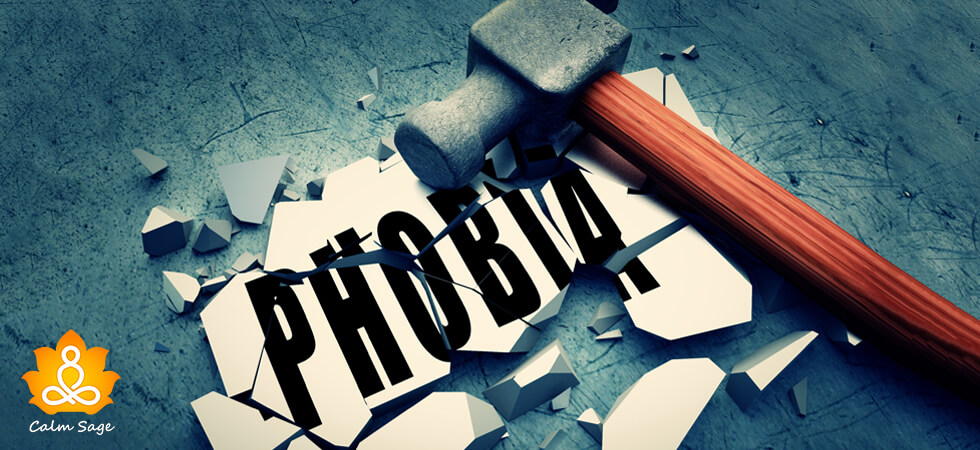
Does close space suffocate you or a fear of falling from the edge always interrupts you? Well, let us tell you that such phobias are pretty common and you don’t need to be afraid of any of them. Talking about it, Phobia is a type of psychological disorder that is most common among women and the second most common among men, as per the American Psychiatric Association.
Phobia or fear of something usually emerges during childhood but may prolong even during adulthood. Apart from most common phobias that are being experienced by 9% to 18% of the U.S. population, there are numerous other types in the list that respond in the form of rapid heart rate, sweating, dizziness, shaking, feeling sick, etc.
These different types of phobias develop either due to behavioral theories or a horrible and unforgettable experience. Sometimes these phobias are even genetic. But the good side is that phobias are treatable and can be cured with cognitive-behavioral theory and proper medications prescribed by doctors.
Phobia in a nutshell…
Phobia means having an anxious episode involving persistent or excessive fear of any object or any specific situation. Phobia is experienced when a person is exposed to the source of fear and triggers an excessive and immediate anxious response.
Through this blog, let us explore the most common type of phobias and their meaning.
Types of Phobias
According to the American Psychiatric Association (APA), there are three groups of phobias:
- Social Phobias: Social phobias are also referred to as social anxiety disorders. social phobias is a fear of social situations wherein a person might feel anxious to socialize because they feel that they will be embarrassed or judged.
- Agoraphobia: Agoraphobia involves the extreme or irrational fear of being in places wherein it is difficult to escape. it can be fear of leaving home or being in crowded places.
- Specific Phobias: Specific phobias are triggered by talking, experiencing, or seeing specific objects like needles, spiders, snakes, and more.
The list of phobias covers various types of phobia that trigger anxiety and can negatively impact someone’s quality of life. in this blog, you will be able to observe that the specific phobias mostly fall into one of four major groups:
- fear of specific animals
- fear related to natural environment
- fear related to specific circumstances
- fear related to treatment or medical issues
Most Common Types of Phobias :
Let’s find out some of the most common phobias that many of us are facing every day, knowingly or unknowingly.
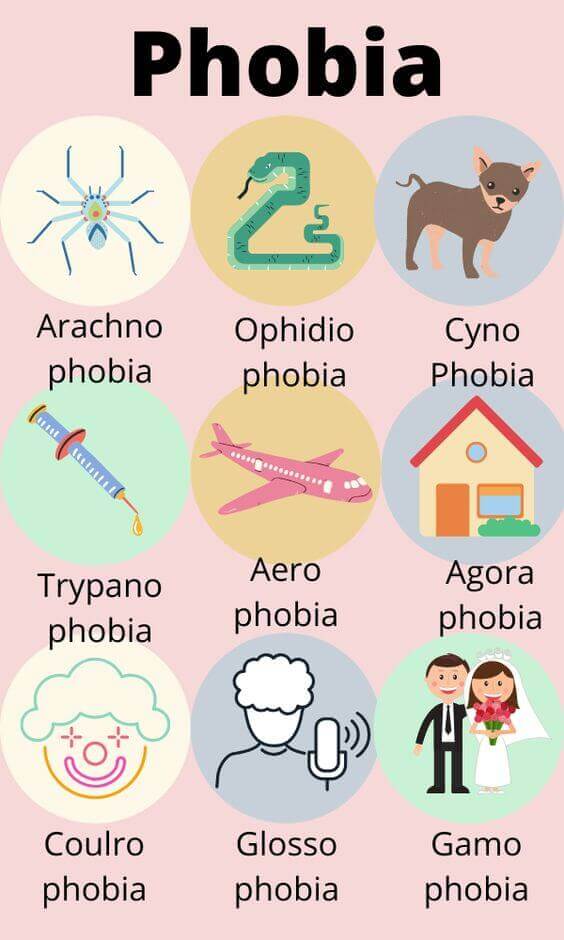
1. Mysophobia: Fear of Contamination and Germs
It is a pathological fear of contamination and germs and usually relates with OCD. Victims keep washing their hands to protect themselves from germs and even own a collection of disinfectants.
2. Arachnophobia: Fear of Spiders
The fear of spiders and other arachnids denote this kind of phobia. In fact, the picture of the spider is alone enough for the panic. Such people avoid thinking spiders and arachnids could be found.
3. Acrophobia: Fear of Heights
The fear of heights may lead to an anxiety attack among more than 6% of acrophobic’s. Acrophobics avoid going to tall buildings, mountains or tall towers in fear of falling down.
4. Ophidiophobia: Fear of Snakes
Ophidiophobia is one of the most common phobias and related to the fear of snakes. The disgusting feeling by looking at snakes or snake pictures may appear because of personal experience or cultural influence.
5. Aerophobia: Fear of Flying
As the name suggests, the fear of flying is called aerophobia. Though the plane accidents are uncommon, the fear lingers in approximately 10%-40% U.S. adults. Rapid heartbeat and trembling is common with this type of phobia.
6. Cynophobia: Afraid of dogs
Cynophobia is a type of phobia where a person is afraid of dogs and the fear is mostly associated with personal experiences. Such people keep a safe distance from the streets or houses where dogs wander and live.
7. Trypanophobia: Fear of Injections
Many people try to avoid doctors and any kind of medical treatment because of Trypanophobia or the fear of injections. Some people experience rising heart rate or some even pass out during the injection.
8. Claustrophobia: Fear of Small Spaces
Claustrophobia is a situation when a person has a fear of small spaces like crowded rooms, elevator or a closet. It makes him feel that his personal space is being taken away. There is fear, anxiety and chances of panic attack.
9. Glossophobia: Fear of Speaking in Public
A kind of social disorder, people having glossophobia are scared of speaking in public. Some may fear speaking or some completely stay quiet amongst a group of people.
10. Social Phobia: Fear of Social Interaction
Also known as Social Anxiety Disorder, the person facing it avoids going to places where he doesn’t know many people. Avoidance of social interaction and complete refusal to leave the house are some common phrases.
A-Z List of Common Phobias
In this section, I have covered a list of common phobias in the alphabetical order.
A:
| A | Fear |
| Ablutophobia | Fear of bathing |
| Achluophobia | Fear of darkness |
| Acrophobia | Fear of heights |
| Aerophobia | Fear of flying |
| Algophobia | Fear of pain |
| Agoraphobia | Fear of crowded or open spaces |
| Aichmophobia | Fear of pointed or needled objects |
| Amaxophobia | Fear of riding a car |
| Androphobia | Fear of men |
| Anemophobia | Fear of air |
| Ataxophobia | Fear of disorder |
| Angrophobia | Fear of anger |
| Anthrophobia | Fear of flowers |
| Anthropophobia | Fear of people |
| Arachnophobia | Fear of spiders |
| Arithmophobia | Fear of numbers |
| Astraphobia | Fear of thunder |
| Astrophobia | Fear of outer space |
| Atelophobia | Fear of imperfection |
| Autophobia | Fear of being alone |
B:
| B | Fear |
| Bacteriaphobia | Fear of bacteria |
| Barophobia | Fear of gravity |
| Bathmophobia | Fear of steep slopes or stairs |
| Belonephobia | Fear of needles and pins |
| Bibliophobia | Fear of books |
| Botanophobia | Fear of plants |
C:
| C | Fear |
| Cacophobia | Fear of mirrors |
| Catoptrophobia | Fear of mirrors |
| Chionophobia | Fear of snow |
| Chrometophobia | Fear of spending money |
| Chromophobia | Fear of colors |
| Chronophobia | Fear of time |
| Claustrophobia | Fear of confined spaces |
| Coulrophobia | Fear of clowns |
| Cynophobia | Fear of dogs |
D
| D | Fear |
| Daemonophobia | Fear of demons |
| Decidophobia | Fear of making decisions |
| Domatophobia | Fear of houses |
| Dystychiphobia | Fear of accidents |
E
| E | Fear |
| Ecophobia | Fear of home |
| Elurophobia | Fear of cats |
| Emetophobia | Fear of vomiting |
| Ephebiphobia | Fear of teenagers |
| Erotophobia | Fear of sex |
F:
| F | Fear |
| Febriphobia | Fear of fever |
| Frigophobia | Fear of becoming too cold |
G:
| G | Fear |
| Gamophobia | Fear of marriage |
| Glossophobia | Fear of speaking in public |
| Gynophobia | Fear of women |
H:
| H | Fear |
| Haphephobia | Fear of touch |
| Hemophobia | Fear of blood |
| Hippopotomonstrosesquipedaliophobia | Fear of long words |
| Hydrophobia | Fear of water |
| Hypochondria | Fear of illness |
I:
| I | Fear |
| Iatrophobia | Fear of doctors |
| Ideophobia | Fear of new thoughts or ideas |
| Iophobia | Fear of poison |
| Isolophobia | Fear of isolation |
| Ithyphallophobia | Fear of an erection |
K:
| K | Fear |
| Koinoniphobia | Fear of rooms |
| Kakorrhaphiophobia | Fear of failure |
| Kenophobia | Fear of empty spaces |
| Kinetophobia | Fear of motion |
| Kleptophobia | Fear of theft |
Phobias can have mental, behavioral, and physical symptoms like:
- Sudden pain or chest tightness
- Hot flashed or chill
- Choking sensations
- Dizziness
- Difficulty breathing
- Confusion
- Increased or decreased blood pressure
- Dry Mouth
- Racing heartbeat
- Sweating
- Shaking or trembling
- Nausea
- Fear of losing control
- Anxiety
Causes of Phobias
Some common combinations of factors can play a part of developing a phobia. Some of the common causes of phobias include:
- Genetics: Genetics can play a major role in the development of any type of phobia or any type of anxiety disorder. If someone close has any type of phobia, then there are high chances of surpassing the genetics or developing the phobia in the upcoming generations.
- Traumatic Experiences: Someone who has experienced any stressful, traumatic, or difficult situation can develop phobia related to the specific object or situation. For example, if someone saw a person dying due to falling off a large object then it may trigger megalophobia (fear of large objects) in that person.
Treatment Options for Phobias
While phobias can negatively impact mental health and quality of life, you might want to know that it can be treated and managed by adapting some positive ways. Below are some of the treatment options for treating phobias:
Exposure Therapy: Exposure therapy is one of the most commonly used treatment methods used for treating phobias. it is the first-line approach wherein the person is gradually and progressively approached toward the source of fear. This helps in processing your triggers and moving slowly towards facing the fear. There are three types of exposure-based treatments:
- In vivo Exposure
- Virtual Exposure
- Systematic Desensitization
Cognitive Behavioral Therapy (CBT): CBT is one of the best and most commonly used therapy options for treating various mental health issues. CBT is best because it challenges negative thoughts and helps in converting them to positive or helpful thoughts.
Eye Movement Desensitization and Reprocessing (EMDR): EMDR takes the support of rhythmic eye movement for helping clients process their traumatic experiences. It is highly used for treating post-traumatic stress disorder (PTSD). But, it is also known to be effective in treating some trauma-related phobias.
Self-Help Tips for Managing or Overcoming Phobias
Along with therapy, you can try the below-mentioned self-help tips for overcoming phobias easily and effectively:
- Practice mindfulness
- Practice deep breathing exercises
- Take the help of your senses
- Challenge your negative thoughts
- Exercise regularly
- Try meditation to keep the zen maintained
- Get enough sleep
- Reduce or avoid caffeine intake
- Eat healthy and regular meals
- Talk to someone
- Learn to manage your anxiety and stress
- Join support group
- Talk to your therapist
You Can Also Watch This Video to Know the Most bizarre Phobias and Their Meanings:
Frequently asked questions
Q1. Why do we have phobias?
Most of the phobias occur due to a negative incident or a negative experience or it could be genetic or environmental factors that contribute to a specific phobia. In some places, cultural factors contribute to phobic conditions.
Q2. Does every human being have a phobia?
You may say that every person has phobia or an irrational fear from something or the other. However, these fears are minor and do not cause long term anxiety.
Q3. Is there a difference between phobia and fear?
The level of anxiety and intensity of experiences differ in between fear and phobia. They could be termed as similar names but phobia has the capability to interfere with the quality of body-mind functioning.
Q4. What are some phobias that (almost) everyone has?
Some of the most common phobias include Aerophobia, Claustrophobia, Mysophobia, Glossophobia and Ophidiophobia.
Conclusion
Have you got the idea of different types of phobia? We are sure that some of our readers are a part of this list as well, even I am. Yes but this doesn’t mean that we should remain scared forever. Let’s fight with it together. If you wish to ask any questions, drop us in the comments section below and we will get back to you in no time.
You May Like These Also:
What To Do When You Feel Overwhelmed With Life






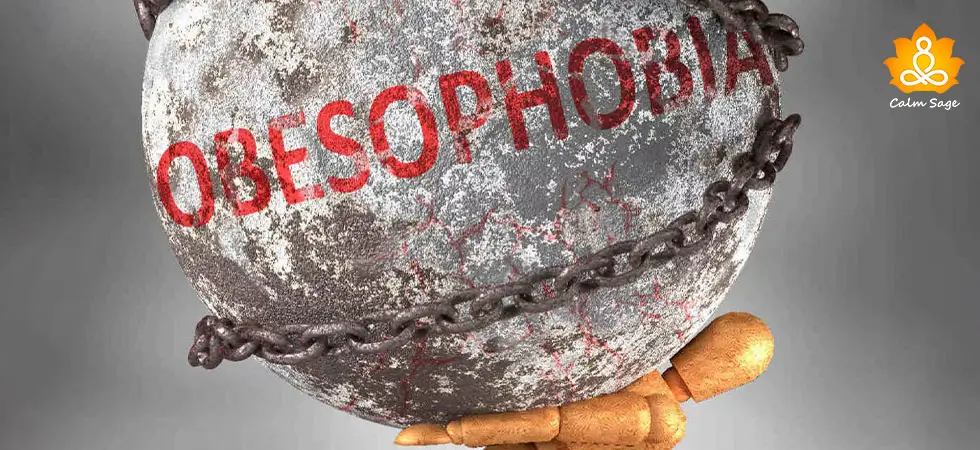
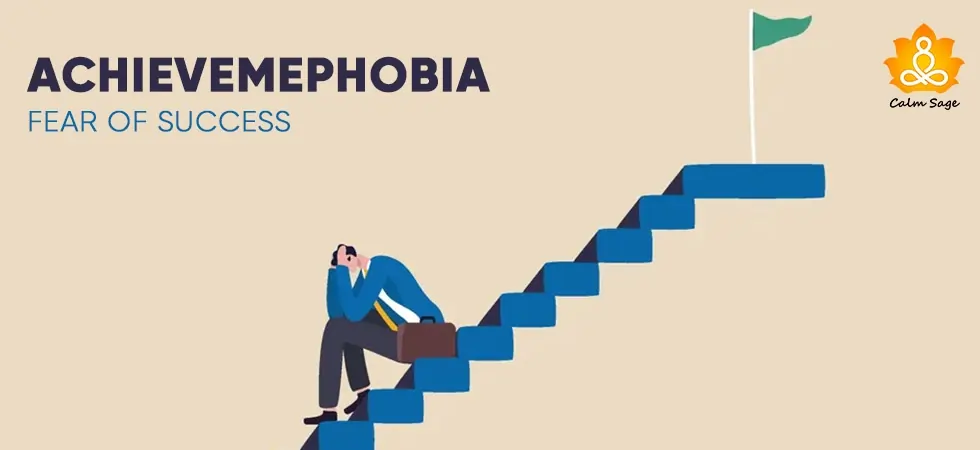
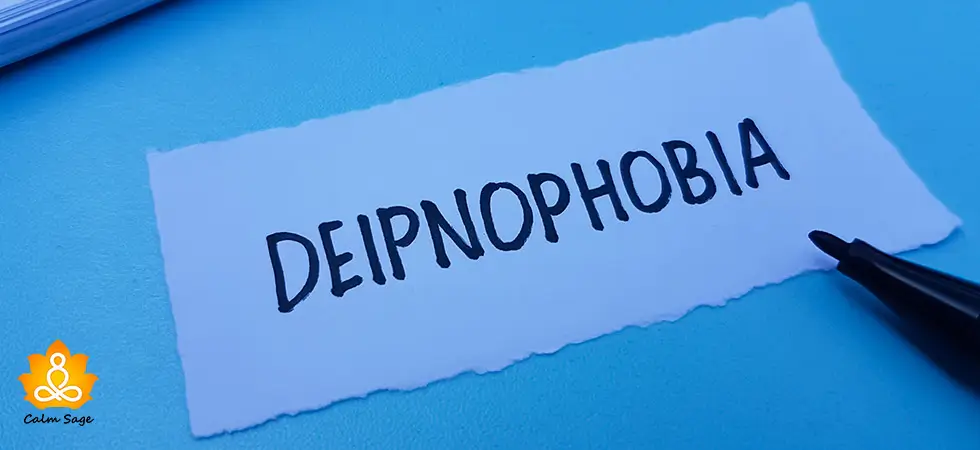












This list of phobias helps me understand better about. Thank calmsage. You guys are doing great work.
Trypophobia 🥴🥴🥴🥴🥴🥴🥴🥴🥴🥴